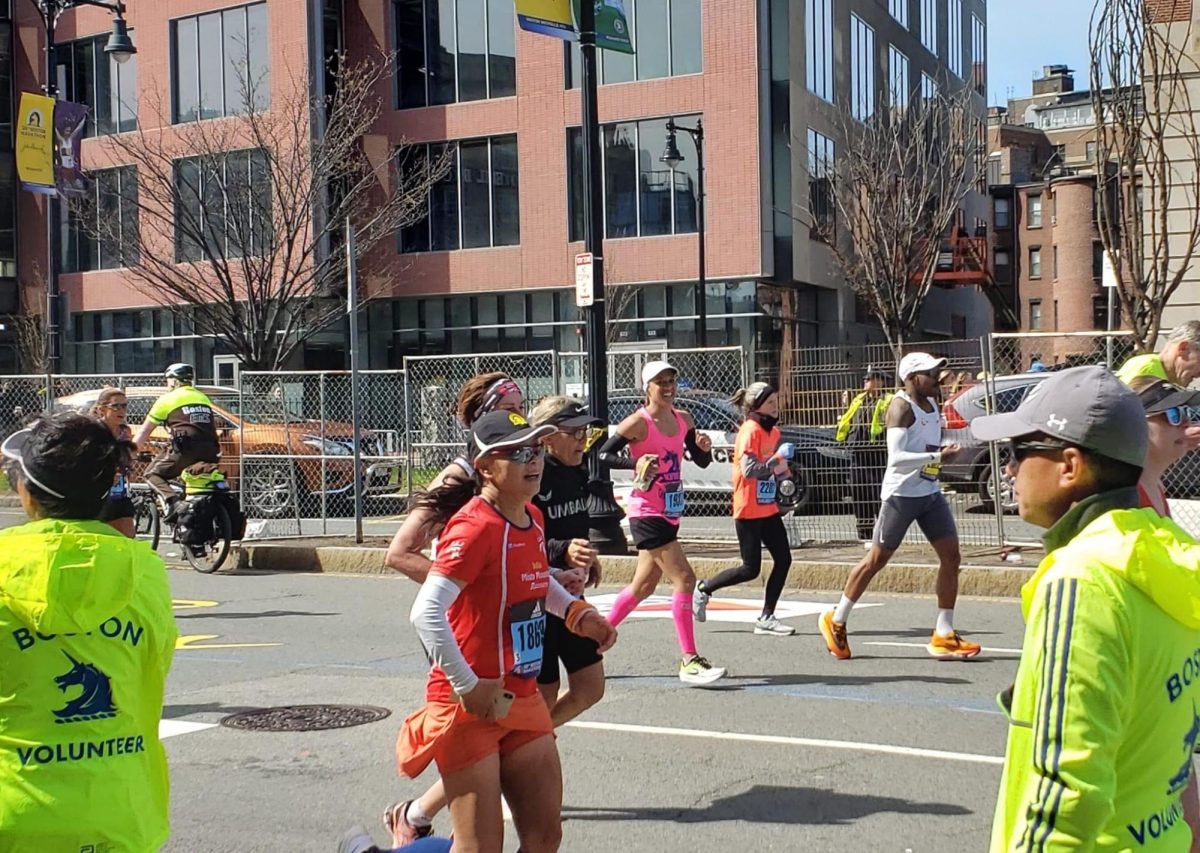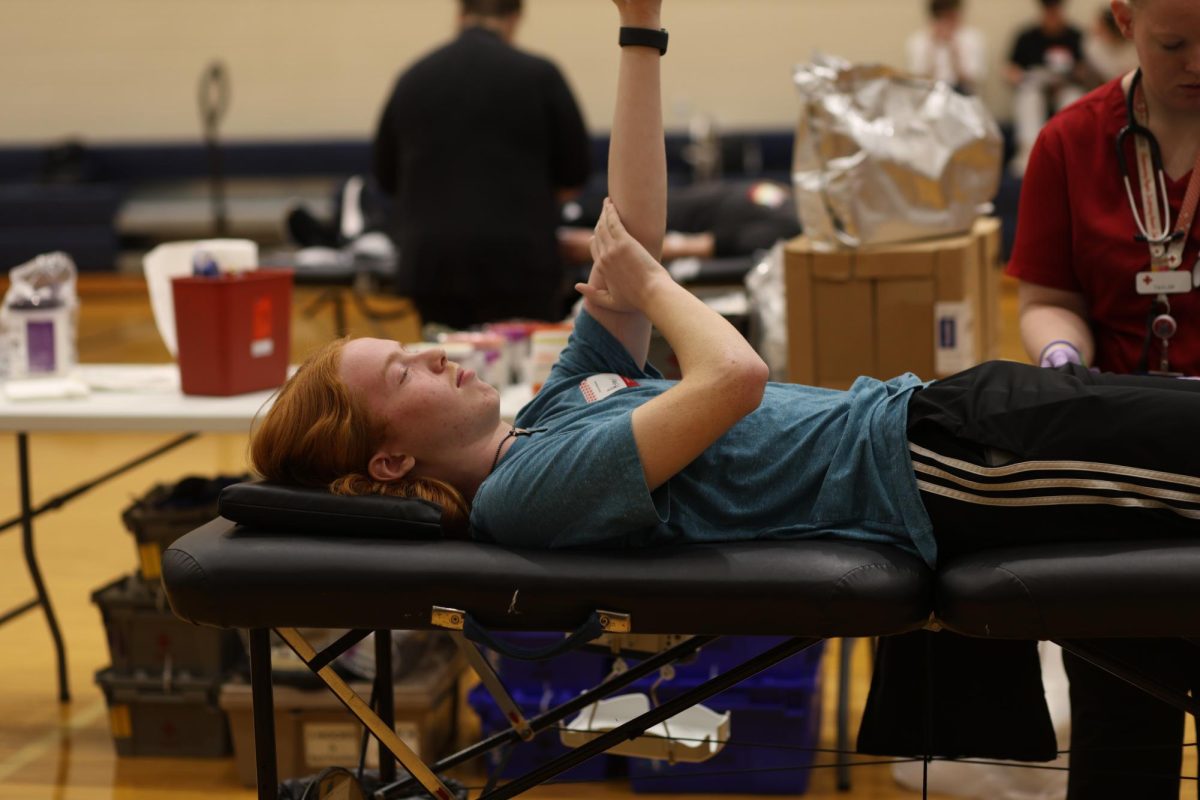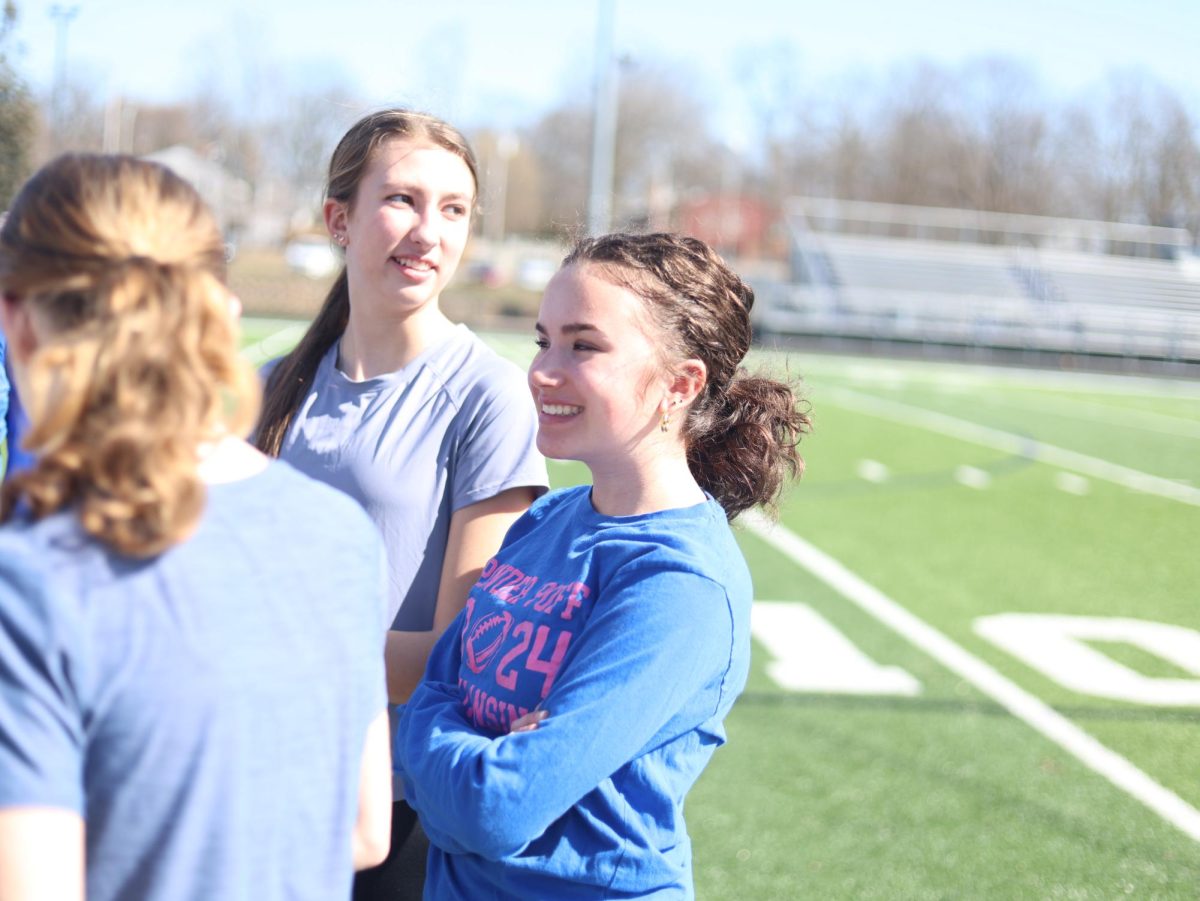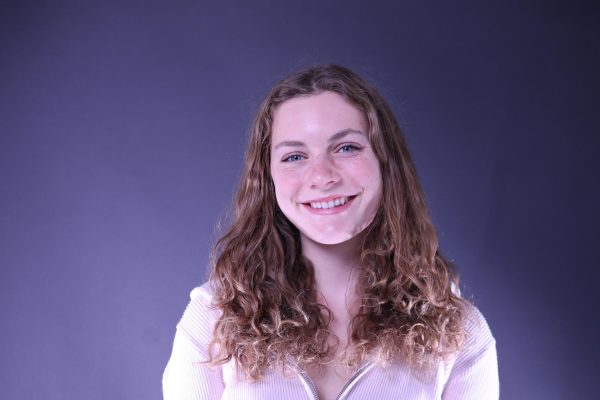For years, PE and health teacher Khati Brazee’s dream was to qualify for the Boston Marathon. Three years ago, she made it happen. Now, she’s looking forward to running every marathon of the World Abbott Six Star Majors, consisting of races in Boston, New York, Chicago, London, Tokyo, and Berlin.
But Brazee’s journey to this feat was anything but easy. She was born with cerebral palsy, a muscular and cognitive disease.
“Doctors said I would never walk, I would never ride a bike, I would never graduate from college, all of those things,” Brazee said.
Brazee’s parents, however, wouldn’t allow their daughter to have fewer opportunities than everyone else.
“They taught me to grow up not having a disability,” Brazee said. “So anything that everybody else was doing, I was always encouraged to do. I grew up with the work ethic of ‘figure it out. You never give up on it.’”
So she began running when she was seven years old. After her dad had heart surgery, she tagged along with him during his recovery runs.
“My favorite place to run would be what I call my mine and my dad’s route, which is along Moores River Drive, because that’s the one I would run when I was little,” Brazee said.
After running in high school, Brazee ran Division I for Central Michigan University for two years, but she viewed it as more of a job than a sport. Her team would run 110 miles a week and eating disorders were very prevalent.
“Running DI for me was very negative because I had a coach that didn’t have the same values and morals that my family did,” Brazee said. “It was all about the wins.”
Brazee was also a qualifier for the 1996 Olympics in Atlanta. She attended with her father, who coached her all the way from the start of her running career through high school. His biggest aspiration was for her to run the Boston Marathon. Unfortunately, he never had the chance to see her race because he passed away in 2021 from Alzheimer’s.
“Boston is very unanimous with the unicorn because it’s so hard to get into, and the only thing he could remember [before he passed] was chasing the unicorn,” Brazee said. “The last thing I was able to tell him was that I qualified for Boston. He said to me, ‘I’ll see you at mile 18.’ And then he passed away,”
Brazee’s mom died 103 days later. Since then running has been a way for Brazee to honor her parents.
“My parents taught me to love running, and they would always say, ‘If you don’t want to do it, you don’t have to do it,’” Brazee said.
Despite the loss of her parents, Brazee still receives support from her sisters, Amy Baibak and Danielle Moore. Moore is a Nassar survivor, and has, according to her interview with The Cut, “chronic back and spinal pain from old gymnastics injuries, a result of the lack of real treatment from Nassar.”
“Her body is so wrecked that standing for hours to watch me run was really, really special,” Brazee said.
Brazee runs for an organization called the Army of Survivors, which, according to their website, brings “awareness, transparency and accountability to sexual violence against athletes.”
“[The Nassar Case] just brought so much light to the fact that all athletes, all genders, they have to have a voice,” Brazee said. “And I think her not being able to have a voice really kind of broke me, because I’m older, and she felt like she really couldn’t come to me. She felt like she was doing something wrong when there was nothing that she was doing wrong. So I think giving back to that organization [Army of Survivors] is extremely important to me, because it gives those kids, those now-adults, even more power.”
Brazee is one of 15 runners who will be racing the 2025 Chicago Marathon for the Army of Survivors.
As she gets older, Brazee’s cerebral palsy strengthens. When she trains for marathons, she has to go to physical therapy for six hours a week and have Botox injections. Despite this, Brazee has realized that running is something she will have for the rest of her life.
“You don’t always have to be competitive, but you can always walk outside your door and run, whether it be a mile, two miles, three miles, whatever,” Brazee said.
Running allows Brazee to decompress and process her grief.
“You’re able to settle into your body and enjoy the quiet. I think in our society, we have so much noise coming at us all the time, like on social media, and people telling us what to do and what we shouldn’t do, and it’s just too much. I think I need that hour a day to just settle and have the quiet.”
Brazee also feels it is important for her students to see her as a role model for their own lives.
“As a teacher, I think it’s great for students to see that even as adults we have to persevere,” Brazee said. “Not everything’s going to be easy. Things in the classroom aren’t easy. Life isn’t going to be easy, but you have to find a way to figure out how to persevere through those things. And I think running gives me that time to think through some of that because it’s important for me to be a positive role model, both in the classroom and out. And because I teach PE and health, I always tell my kids, it’s not something I teach, it’s something I live.”






